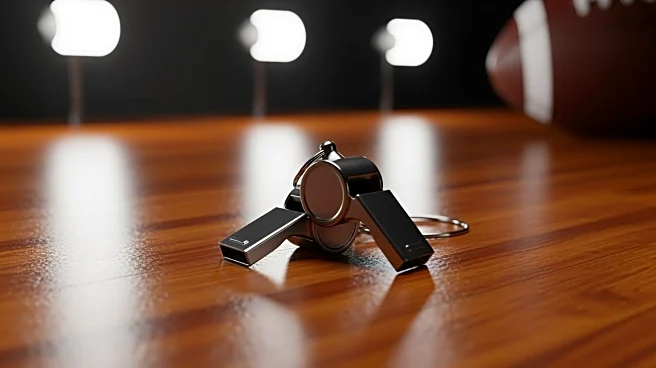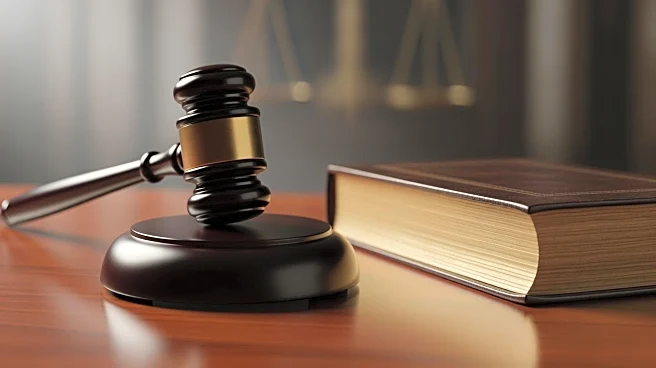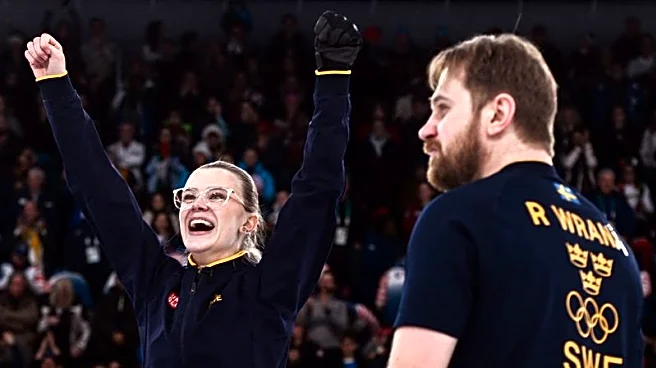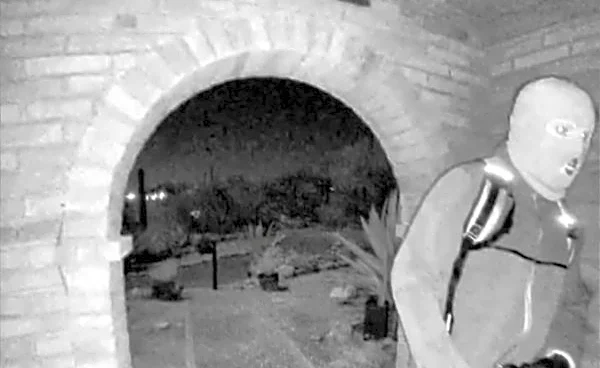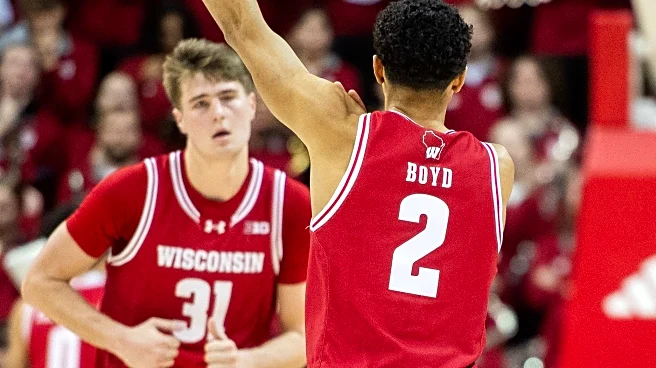What's Happening?
Deion Sanders, head coach of the Colorado Buffaloes, displayed his leadership qualities following a controversial pregame incident involving his assistant coach, Warren Sapp. Sapp, a former NFL star, was
caught on video knocking over one of Utah's end zone pylons before the game, a move criticized as disrespectful. Despite the backlash, Sanders took it upon himself to rectify the situation by picking up the pylon and placing it back, showcasing his respect for opponents. The incident occurred before the Buffaloes faced a significant defeat against Utah, losing 53-7, which marked their worst loss since Sanders took over the program in 2023.
Why It's Important?
The incident highlights the importance of sportsmanship and leadership in college athletics. Sanders' actions serve as a reminder of the values expected from coaches and players, emphasizing respect for opponents. This event also underscores the challenges Sanders faces in his coaching role, as the Buffaloes struggle with performance issues. The team's loss to Utah further complicates Sanders' tenure, raising questions about the program's direction and his ability to lead effectively. The broader impact on college football includes discussions on coaching ethics and the influence of former professional athletes in collegiate sports.
What's Next?
The Colorado Buffaloes will need to address both their performance issues and the internal dynamics highlighted by the incident. Sanders may face increased scrutiny regarding his coaching methods and team management. The program's future hinges on Sanders' ability to navigate these challenges and improve the team's standing. Stakeholders, including fans and university officials, will be watching closely to see how Sanders responds to this adversity and whether he can foster a culture of respect and success within the team.
Beyond the Headlines
The incident raises questions about the role of former professional athletes in college coaching positions and their adaptation to the collegiate environment. Sapp's actions, rooted in his past as a player, suggest a need for clearer boundaries and understanding of collegiate sportsmanship. This situation may prompt discussions on the integration of professional athletes into college sports and the potential cultural shifts they bring.
